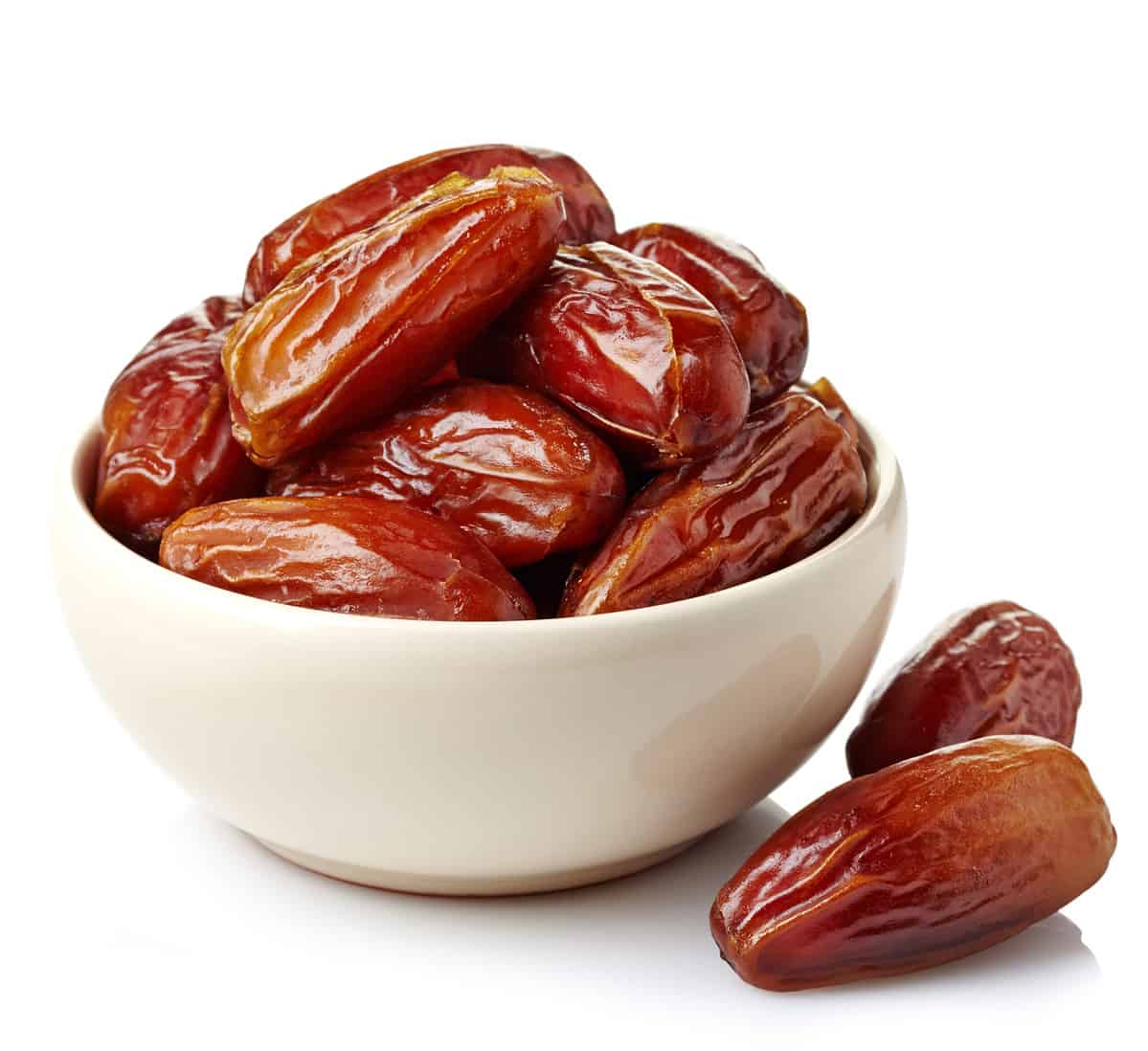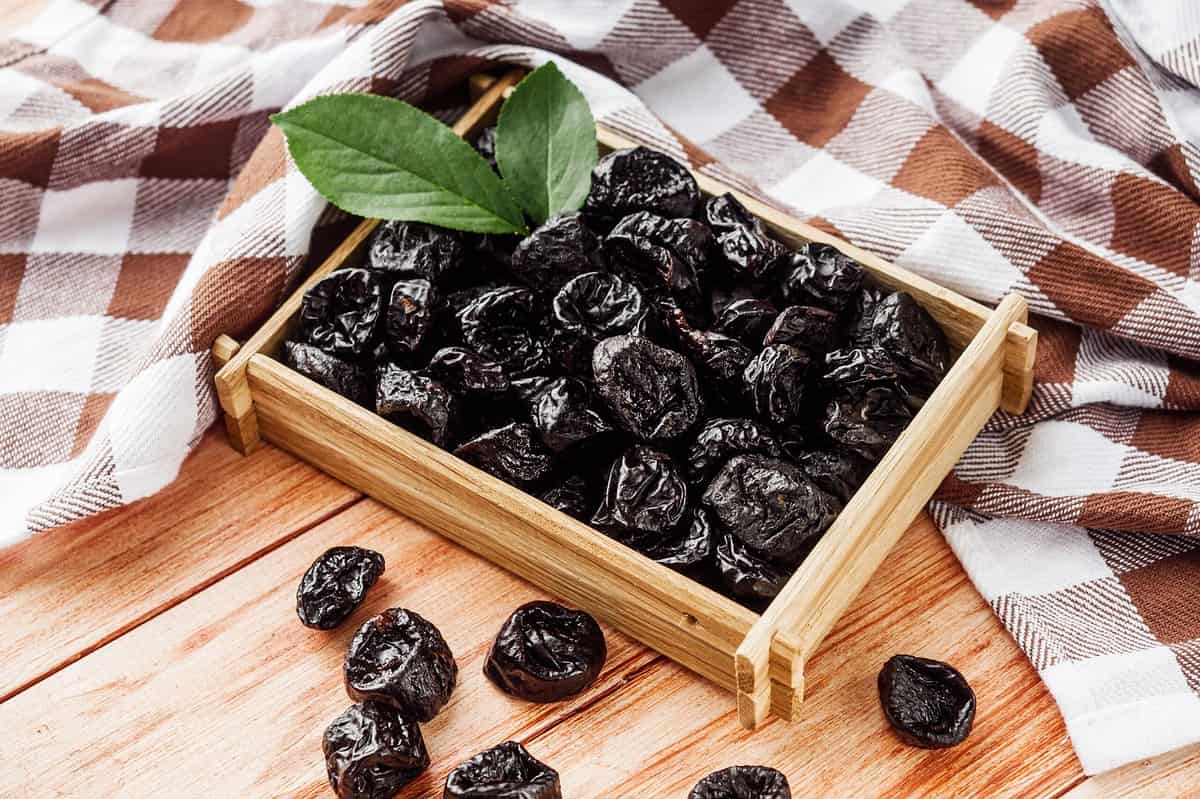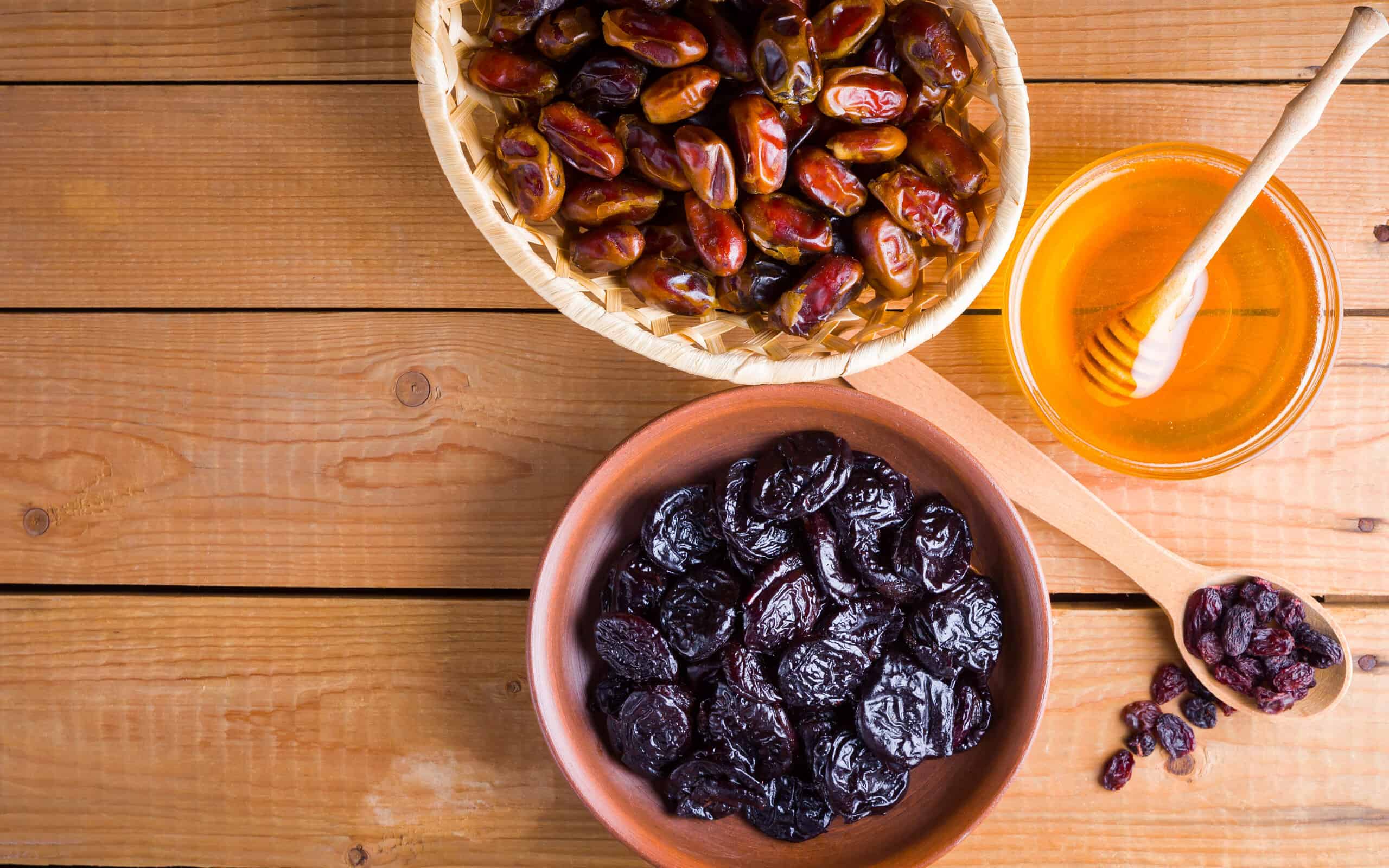Cruising the aisle of any grocery store, you will most likely come eye to eye with several dried fruit options. Dried fruit can be both tasty and offer plenty of nutrients. However, knowing the differences between certain ones can be tricky, especially when they look very similar. Two popular dried fruits that are very similar are dates and prunes. Both offer plenty of vitamins and nutrients and can be pretty tasty! Yet, the difference between dates and prunes is worth exploring. This article will examine the nutrient differences, flavor, texture, and more. Let's take a look below!
What Are Dates?
Dates are recognizable by their wrinkly appearance and differing colors. These colors range from red to yellow. These very sweet treats are the fruit of the date palm tree. Date palm trees grow in tropical regions all around the world. They grow in large bunches, like grapes, and have pits that are often removed before eating. It is possible to eat fresh or dried dates. However, dried dates are the more popular version sold in Western grocery stores.
Dates come with plenty of nutritional benefits. For starters, they support brain health and possibly prevent disease. They are high in necessary vitamins and nutrients such as fiber and antioxidants. These benefits, coupled with the sweet flavor of dates, make them a flavorful and excellent snack!

Dates are very sweet and have a high sugar content. They can be eaten fresh and dried and contain plenty of essential nutrients!
©baibaz/Shutterstock.com
What are Prunes?
Prunes are dried plums and are very similar to dates. However, they have a few differences that set them apart. Most prunes derive from one of two different types of plums. The first one is the Japanese plum. This type of plum is the larger and juicier of the two. It can range in color from yellow to red. The second one is the European plum. It is denser and smaller than the Japanese plum. It ranges in color from purple-red to dark blue.
Once the plum is dried, it produces a dark and wrinkly prune. The dehydration process of the plum is for preservation purposes. Once dehydrated, the flavor of the prune is very sweet yet a bit tangy. It is also chewy in texture.
Prunes are known for their constipation-relieving elements. They have plenty of fiber and antioxidants. Their shelf life is also around six months, making it possible to keep them in your cabinet for extended periods.

Prunes are recognizable by their wrinkly and dark appearance. They are also sweet like dates but can also have a tart-like flavor.
©Narsil/Shutterstock.com
Dates vs. Prunes: Which is Healthier & 3 Key Differences
While they look similar, dates and prunes have a few differences. These differences vary between health benefits, appearance, and flavor. Take a look below at these essential differences.
First, dates and prunes differ in their appearance. Dates tend to be smaller than prunes. They can be dark-colored but also can be light in appearance. Dates also have a round pit.
Prunes are larger than dates. They are darker in color. Since prunes have been dehydrated, they have a wrinkly surface. The processing also contributes to their stretchy and chewy texture. Dates have a softer texture than prunes.
What are the Taste Differences Between Dates and Prunes
Another difference lies in the flavor variations between the two. Although both prunes and dates are sweet, dates are sweeter than the two. This is because they contain quite a bit of glucose and fructose. Many people describe dates as tasting like caramel or honey. Dried dates are sweeter than fresh dates. Additionally, they are chewier than prunes.
Prunes have a sweet flavor, yet it is milder than dates. The sweet flavor is also coupled with a tart taste.
One similarity between dates and prunes is that they both have a high carbohydrate content. However, dates are great substitutes for baking. Prunes, on the other hand, do not make a great baking substitute.
Full Health Comparison
Both dates and prunes are high in nutrients. They make an excellent snack for this very reason. Let's look at a few of the variations in their health comparison.
Dates are higher in calories than prunes. A 3.5-ounce serving size of dates will have around 282 calories.
Dates are high in carbohydrates, with around 75 grams in a 3.5 ounce. Prunes are also high in carbohydrates. The same serving size will have around 63 grams of carbohydrates.
Take a look at more of the essential nutrients that both prunes and dates have:
- protein
- fiber
- potassium
- magnesium
- copper
- manganese
- iron
- vitamin B6
Dates are believed to promote memory and lessen anxiety symptoms. Additionally, they may have the ability to reduce inflammation and promote brain and bone health. Out of all the fruits similar to dates, they have a very high amount of disease-fighting antioxidants. These include flavonoids, carotenoids, and phenolic acid. Another benefit of eating dates is the high fiber content. Fiber is excellent for digestive health and blood sugar control.
Additionally, prunes are very nutritious as well. There are actually over 15 types of vitamins and minerals that are beneficial for your health! These include vitamins A, C, and K and potassium, copper, manganese, phosphorus, and magnesium.
Although prunes are high in carbohydrates like dates, they are lower in calories and sugars. The benefits of eating prunes include lowering blood sugar and promoting heart and bone health. Additionally, prunes are insoluble and act as a natural laxative, which is excellent for digestive health!
One Last Note
Dates and prunes both make tasty and nutritious treats! They are sweet and have essential vitamins for our health, including potassium, magnesium, and important vitamins like A and C. They both are fantastic for digestive health as well. If you want a yummy snack for yourself or your kids, try either one!
The image featured at the top of this post is ©Lazartivan/Shutterstock.com

